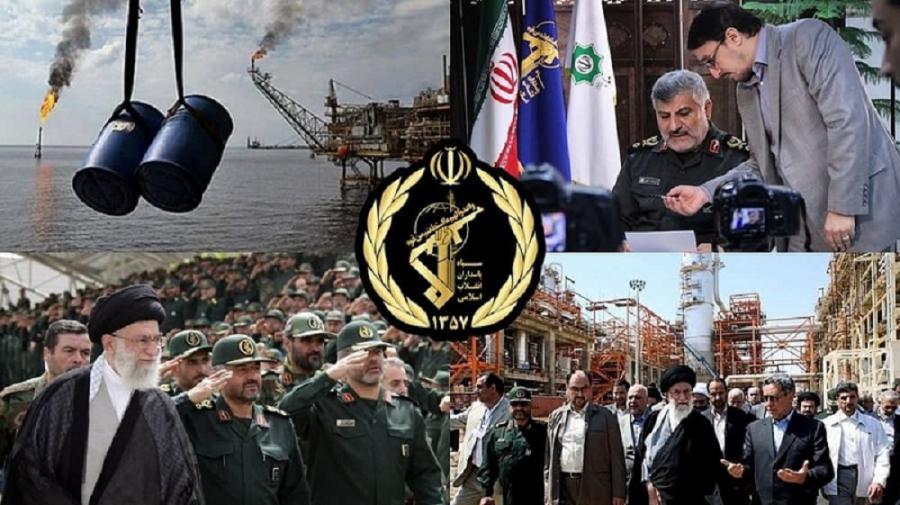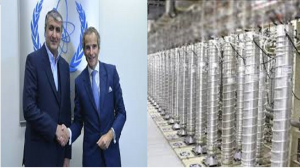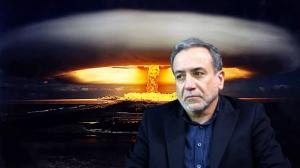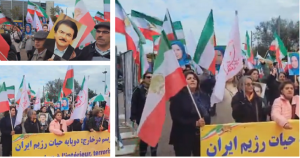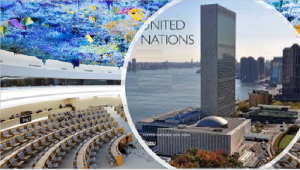
(Video) Dismissing Talks with EU Exposes Iranian Regime’s Fear of Weak Position Amid Harsh Nuclear Rhetoric
The Iranian regime have made a flurry of statements revealing both their anxiety and a recognition of their weakened position in any negotiations with the West.
PARIS, FRANCE, December 2, 2024 /EINPresswire.com/ -- The National Council of Resistance of Iran (NCRI) Foreign Affairs Committee in an article published that as the specter of the UN Security Council’s snapback mechanism grows closer, the Iranian regime is displaying increasing desperation, using aggressive rhetoric and threats to mask its fear of impending international action.
Officials and regime mouthpieces have made a flurry of statements, revealing both their anxiety and a recognition of their weakened position in any negotiations with the West.
Mohammad Eslami, head of the regime’s Atomic Energy Organization, acknowledged on a state TV interview on November 27 that Iran has initiated gas injection into thousands of advanced centrifuges in response to the International Atomic Energy Agency’s (IAEA) resolution.
“This is part of our nuclear development program. Iran has always shown a willingness to cooperate, but it will never retreat in the face of force and illegal actions,” Eslami said. Attempting to downplay the IAEA’s findings, he dismissed the discovery of undeclared nuclear materials as “old accusations” fabricated by the People’s Mojahedin Organization of Iran (PMOI) to justify pressure on Tehran.
Eslami’s defensive remarks are emblematic of the regime’s larger struggle. While officials loudly proclaim their defiance, their actions and internal commentary expose deep concern over the possibility of UN sanctions being reinstated through the snapback mechanism under Resolution 2231.
High-ranking officials in Iran’s parliament have echoed this unease. A member of the presidium, Mojtaba Yusefi, suggested a potential shift in Iran’s nuclear doctrine.
“If Europe fails to meet its obligations, we will increase our uranium stockpile beyond current levels. While our Leader has stated that nuclear weapons are not part of our doctrine, continued hostility from Israel and the UN will force us to reassess our policies,” he warned.
Similarly, Ebrahim Rezaee, spokesman for the parliament’s security and foreign policy commission, declared, “We should respond to the IAEA resolution with strength, including considering withdrawal from the NPT [Non-Proliferation Treaty]. If necessary, we can enrich uranium to 90% or beyond.”
This rhetoric underscores the regime’s strategy of nuclear extortion, attempting to dissuade Western powers from activating the snapback mechanism. Fereydoon Abbasi, former head of Iran’s Atomic Energy Organization, bluntly stated, “We must pursue higher enrichment levels. Negotiations should not lead us to abandon our national capabilities.”
Despite these threats, some of the regime’s own media have criticized ongoing negotiations with Europe as a sign of weakness. The state-affiliated Kayhan newspaper warned that the current talks risk “submitting to the enemy,” claiming reformist politicians are enabling “humiliating negotiations.” In an article published on November 25, Kayhan questioned, “What will they sacrifice this time in these negotiations?” This admission reflects Tehran’s growing fear that its position in any dialogue is fundamentally compromised.
Masoud Barati, a regime-linked analyst, further highlighted Tehran’s precarious stance. “Given the hostile actions of Europe, including sanctions and anti-Iran resolutions, entering negotiations from this position of weakness raises serious doubts about the outcome,” he warned on November 24.
The state-affiliated Jahan News website published an article titled “Rushing to the Negotiation Table One Week After the Resolution Against Iran!” in which it criticized ongoing talks with Europe.
The article accused pro-Western elements of “having no qualms about weakening the government and the Foreign Ministry against the West, just as they drove Rouhani’s administration into a position of weakness during negotiations.”
It argued that “the government and Foreign Ministry, representing the Iranian nation, should be demanding restitution for Iran’s violated rights in the agreement, not acting as if they owe something.”
While the regime postures aggressively, these admissions reveal a state acutely aware of its vulnerability. The looming snapback mechanism threatens to reinstate comprehensive UN sanctions, a move that could cripple Tehran’s already fragile economy and exacerbate internal unrest.
In this context, Tehran’s threats of escalation and nuclear advancements are less a show of strength and more a desperate attempt to intimidate and delay.
As the international community evaluates its response, it must recognize Tehran’s strategy for what it is: nuclear blackmail designed to forestall decisive action. The only effective response is to resist these threats and reinstate the full spectrum of sanctions under the snapback mechanism.
Tehran’s harsh rhetoric cannot obscure the reality of its weakness, as its own officials and media inadvertently reveal.
Abbas Araghchi, the Iranian regime’s Foreign Minister, has warned that Western threats to reimpose United Nations sanctions could push nuclear policy debates in Iran toward developing nuclear weapons.
Speaking during his trip to Lisbon, Portugal, Araghchi said, “If the West continues its threats, discussions within Iran will inevitably move toward acquiring nuclear weapons.” This statement is part of the regime’s broader strategy of nuclear extortion, aiming to intimidate the West into avoiding a firm policy on Tehran.
Araghchi announced that Iran has begun operating thousands of advanced centrifuges in response to a recent International Atomic Energy Agency (IAEA) resolution. “Gas injection into these state-of-the-art centrifuges has already begun,” he said, attributing this move to Western “pressure.”
He added that, for now, Iran is holding back from enriching uranium beyond 60%, but made clear that such restraint is conditional and could change based on Western actions.
“Iran has previously possessed the capability and knowledge to build nuclear weapons, but this has not been part of Tehran’s security strategy,” Araghchi stressed.
The Foreign Minister attempted to portray Tehran as a victim of Western duplicity while simultaneously issuing veiled threats designed to intimidate. “We complied with all their [Western] demands, yet when it was their turn to lift sanctions, nothing materialized,” Araghchi claimed, framing the regime’s failures in negotiations as evidence of Western bad faith.
He warned that triggering the snapback mechanism, which would reinstate UN sanctions, could push Iran to abandon its current nuclear policy. “If this happens, everyone in Iran will be convinced that our approach has been fundamentally mistaken, and we will face a crisis,” Araghchi declared, signaling that the regime is ready to escalate in response to firm action from the West.
He denied allegations of the regime supplying ballistic missiles to Russia, calling its military cooperation with Moscow “long-standing and entirely legitimate.”
Araghchi’s remarks, along with Tehran’s deployment of advanced centrifuges, underline the regime’s strategy of leveraging its nuclear program to intimidate and extort the West into inaction.
Instead of addressing global concerns about its nuclear violations, Iran is escalating its threats, hoping to avoid further sanctions. These threats are part of a calculated gamble to exploit the West’s fear of escalation while continuing its illicit activities.
As the regime’s defiance grows, international unity and firm action are critical. Araghchi’s remarks are not signs of strength but rather an attempt to project power in the face of mounting domestic unrest, economic collapse, and international isolation.
Tehran’s strategy of nuclear blackmail must be met with decisive measures, including the snapback mechanism to reinstate UN sanctions. Only a firm and united response can prevent further escalation and hold the regime accountable for its actions.
Shahin Gobadi
NCRI
+33 6 61 65 32 31
email us here
In this context, Tehran’s threats of escalation and nuclear advancements are less a show of strength and more a desperate attempt to intimidate and delay.
Distribution channels: Human Rights, International Organizations, Politics, U.S. Politics, World & Regional
Legal Disclaimer:
EIN Presswire provides this news content "as is" without warranty of any kind. We do not accept any responsibility or liability for the accuracy, content, images, videos, licenses, completeness, legality, or reliability of the information contained in this article. If you have any complaints or copyright issues related to this article, kindly contact the author above.
Submit your press release
